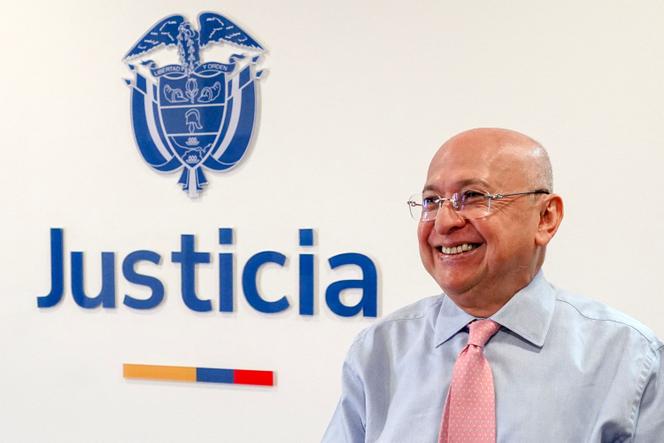


Colombia's new justice minister told AFP on Thursday, June 26, that some key drug extraditions to the United States "will be suspended," even if it worsens already frayed ties with Washington.
Eduardo Montealegre said the leftist government's priority would be to bring dissident leaders − many of whom are deeply involved in the cocaine trade − to the negotiating table rather than jail. "It's about achieving the same goal through different paths," he said at his office in Bogota, "dismantling organized crime, ending drug trafficking."
Colombia is balking at extraditing at least two prominent guerrilla leaders wanted by Washington for drug trafficking. They are believed to include Gabriel "HH" Yepes and Willinton "Mocho Olmedo" Henao Gutierrez, the leaders of two guerrilla factions.
Colombia has received billions of dollars in anti-drug and other security funding from the United States over the years.
Normally close ties between the two nations have been ruptured by public spats between leftist president Gustavo Petro − himself a former guerrilla − and President Donald Trump.
There is increasing frustration in Washington that drug groups have been given more free rein under Petro's policy of "total peace."
Recent years have seen a dramatic uptick in cocaine production and myriad security crises as armed groups have expanded control of large portions of the country's south and east. According to the United Nations, cocaine production, seizure, and consumption in Colombia reached its highest levels ever in 2023. Just this month, a series of guerrilla bomb blasts and gun attacks killed seven people, and a presidential candidate is still fighting for his life after being shot at a rally in Bogota.
Montealegre insisted that the policy of prioritizing "peace needs" over extradition requests was not a blank check for narcos. To benefit from the non-extradition policy, members of illegal groups must disarm, cease violence, and replace illicit crops, he said. He promised strict controls "to prevent people who simply want to mock international justice, from entering peace processes."
Montealegre is one of the country's most well-known legal personalities. He served as a magistrate in the Constitutional Court and as Colombia's Attorney General between 2012 and 2016. As attorney general, he took part in talks with Colombia's paramilitary groups and the now-defunct FARC guerrillas, which culminated in the peace agreement of 2016. He is close to former presidents, such as Nobel laureate Juan Manuel Santos and Alvaro Uribe, a still-powerful leader and torch-bearer of Colombian right-wing politics.
It remains to be seen how Washington will respond to Colombia's refusal to extradite key players in the drug trade. Already some in Washington are calling for Colombia to be put on a drug trafficking blacklist, a move that could cut some funding and cause huge reputational damage.
Montealegre said this so-called "decertification" would be "unfair." "There is no country in the world that makes more effort than Colombia in the fight against drug trafficking. Efforts that we have made jointly with the United States," he said. If dialogue with guerrillas fails, Montealegre said, those requested by the United States would be extradited "immediately."
